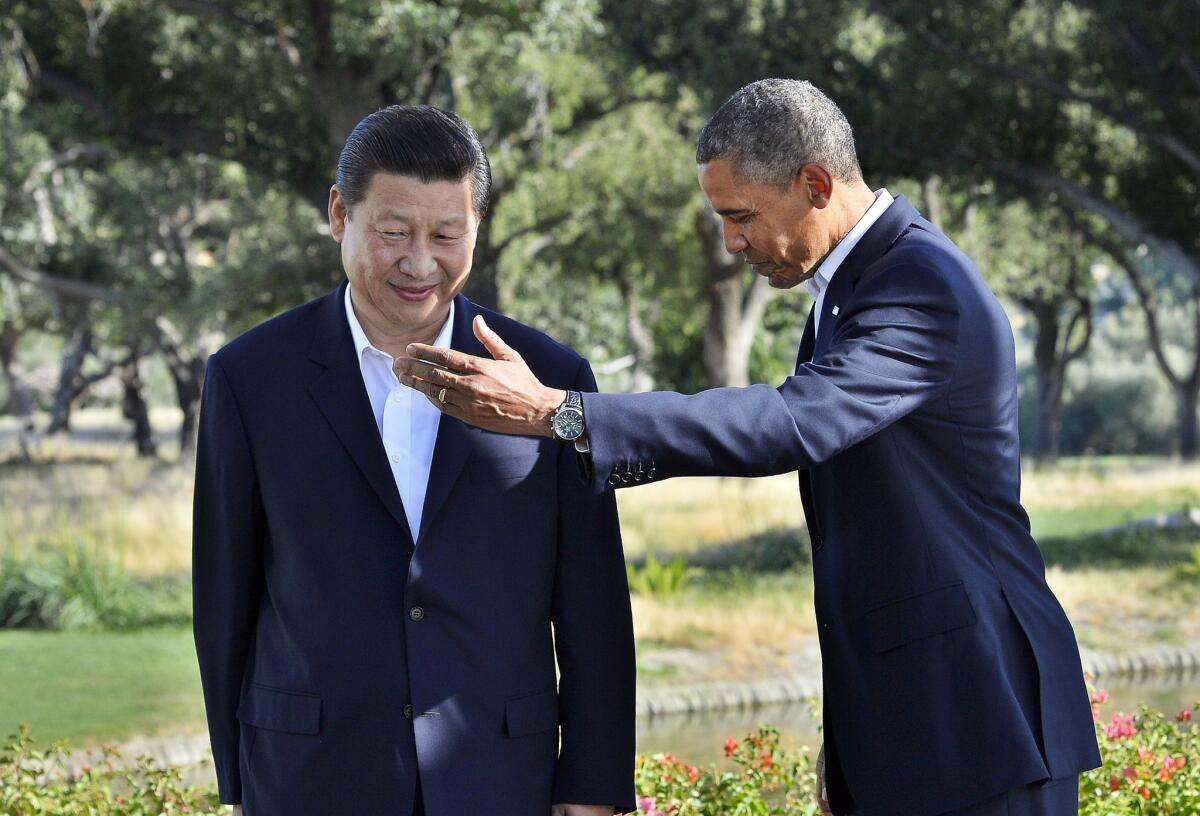Gold Mao statue, liquor seized from ex-Chinese general, report says

- Share via
BEIJING -- A gold statue of Mao Tse-tung, cases of Moutai liquor for “military use” and a golden boat were among a large cache of items investigators seized under cover of darkness from the palatial home of an ousted Chinese general, a well-regarded financial publication has reported.
The raid on the residence of former Lt. Gen. Gu Junshan took place more than a year ago, in January 2013, Caixin magazine said this week in an extensive report on its website, which included multiple photos of his traditional courtyard-style home in Henan province. The publication also examined the wealth and business activities of Gu’s brother, Gu Xianjun.
Gu Junshan was deputy head of the army’s logistics department, which deals with budgets and procurement, and he oversaw a division handling military-owned land, barracks and other housing. In early 2012, the official Xinhua News Agency said in a three-paragraph report that Gu would no longer serve in his position, without giving an explanation.
In 2013, a professor at China’s National Defense University, Gong Fangbin, made brief mention of Gu during a forum on the website of the People’s Daily, saying his case had caused “dissatisfaction” among ordinary people.
No formal charges against Gu have been made public, though allegations that he engaged in illicit land deals to enrich his family have swirled for years. He apparently had authority to sell land and approve construction deals -- areas ripe for bribery and other corruption.
The Caixin article noted that a senior Chinese naval officer, Wang Shouye, who had previously served in the same logistics post as Gu, in 2006 was found guilty of corruption charges.
President Xi Jinping has launched a high-profile campaign to root out corruption and extravagance, but almost all of the major targets have been Communist Party bureaucrats. State-run media recently reported that 182,000 party officials were disciplined in 2013, up 13% from a year earlier.
Military officials have been told to disclose assets and examine their use of state vehicles, housing and other perks, however. Just this week, Xi ordered the military to use only domestic, not foreign-made, vehicles.
Even if Gu is being investigated on allegations of corruption, it is far from clear that he would stand public trial; authorities could opt to handle his case within the military system and out of the public eye.
Still, details of Gu’s properties reported by Caixin seem certain to arouse some measure of public ire. The magazine reported that according to locals in the town of Puyang in Henan, Gu had even hired craftsmen from the Forbidden City in Beijing to decorate one of his homes, which was modeled on the ancient palace itself.
Authorities, the magazine said, opted to remove the liquor, statues and other items from Gu’s mansion after dark because it would “have a bad influence on the ordinary people” if they were to see the haul. The confiscated items reportedly filled four military trucks and took more than 20 armed police to handle.
Twitter: @juliemakLAT
Tommy Yang in the Times’ Beijing bureau contributed to this report.
More to Read
Sign up for Essential California
The most important California stories and recommendations in your inbox every morning.
You may occasionally receive promotional content from the Los Angeles Times.














